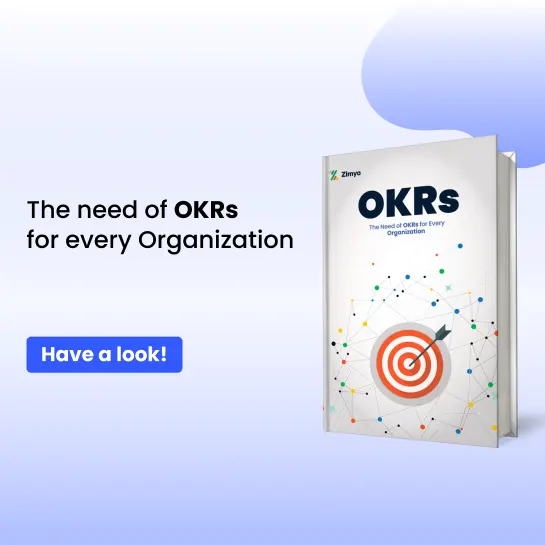A Human Resources Executive plays a vital role in managing the employee lifecycle – from recruitment and onboarding to performance management, engagement, and compliance. The role ensures alignment between the organization’s goals and its people processes while upholding a positive and legally compliant workplace culture.
These interview questions help assess the candidate’s knowledge of HR policies, interpersonal skills, experience with HR tools, and ability to manage both people and processes.
Interview Questions and Tips to Answer
1. Can you walk us through your HR background and experience?
How to Answer:
- Mention your years of experience and key HR functions handled (recruitment, payroll, employee relations, etc.)
- Highlight achievements or process improvements you’ve made.
2. What HR software or systems have you worked with?
How to Answer:
- List tools: Zimyo, BambooHR, Keka, Zoho People, SAP SuccessFactors, etc.
- Mention how you used them — payroll processing, attendance, performance reviews, etc.
3. How do you handle conflict between employees?
How to Answer:
- Explain your approach: listen actively, remain neutral, mediate fairly.
- Share an example of a situation where your intervention improved the outcome.
4. What is your approach to onboarding new employees?
How to Answer:
- Discuss structured onboarding: welcome email, paperwork, intro meetings, buddy system.
- Highlight your goal to make new hires feel comfortable and productive quickly.
5. How do you ensure employee engagement in a remote/hybrid setup?
How to Answer:
- Mention regular check-ins, virtual activities, feedback mechanisms.
- If possible, share metrics showing improved retention or morale.
6. What’s your understanding of labor laws relevant to HR?
How to Answer:
- Refer to key laws: Minimum Wages Act, Shops & Establishment Act, PF/ESI, Maternity Act, etc.
- Explain how you ensure compliance during HR operations.
7. How do you manage confidential employee data?
How to Answer:
- Emphasize data privacy practices and software security protocols.
- Share how you maintain integrity and confidentiality in daily tasks.
8. How do you handle mass hiring or urgent recruitment needs?
How to Answer:
- Talk about sourcing strategies, using job portals, ATS, employee referrals.
- Discuss how you prioritize speed while maintaining candidate quality.
9. What KPIs do you track in HR?
How to Answer:
- Common metrics: attrition rate, cost-per-hire, time-to-fill, employee satisfaction score, training completion.
- Share how tracking helped drive better HR decisions.
10. How do you support performance management?
How to Answer:
- Talk about goal setting (OKRs, KPIs), appraisal cycles, feedback mechanisms.
- Mention any tools you’ve used (Zimyo, etc.).
11. How do you manage employee grievances?
How to Answer:
- Discuss setting up a safe reporting process, being an active listener, and resolving issues fairly and promptly.
- Share an example if possible.
12. Tell us about a time you improved an HR process.
How to Answer:
- Use STAR method (Situation, Task, Action, Result).
- Emphasize your impact—time saved, cost cut, or improved employee satisfaction.
13. What’s your strategy for reducing attrition?
How to Answer:
- Mention engagement, career development, surveys, recognition programs.
- Highlight preventive actions based on exit interviews.
14. How do you balance compliance with employee empathy?
How to Answer:
- Show how you remain legally sound while understanding the human aspect.
- Share a scenario where you balanced both well.
15. How do you support diversity and inclusion in hiring?
How to Answer:
- Talk about unbiased JD writing, structured interviews, outreach to diverse talent pools.
- Emphasize inclusive workplace culture beyond hiring.
16. Describe your experience with training and development programs.
How to Answer:
- Share how you assessed training needs, developed calendars, tracked progress.
- Mention outcomes: increased productivity, promotion rates, etc.
17. How do you handle underperforming employees?
How to Answer:
- Discuss early feedback, performance improvement plans (PIPs), documentation.
- Focus on fairness and support.
18. Why did you choose a career in HR?
How to Answer:
- Share your passion for people, interest in organizational development, or prior inspiration.
- Keep it personal and honest.
19. Where do you see yourself in the next 3–5 years?
How to Answer:
- Show aspiration within HR: becoming an HRBP, HR Manager, or a specialist (L&D, Talent Acquisition, etc.).
20. Do you have any questions for us?
How to Answer:
- Ask about the team, HR tech stack, cultural initiatives, or expectations in the first 90 days.
- Demonstrates genuine interest and preparedness.


